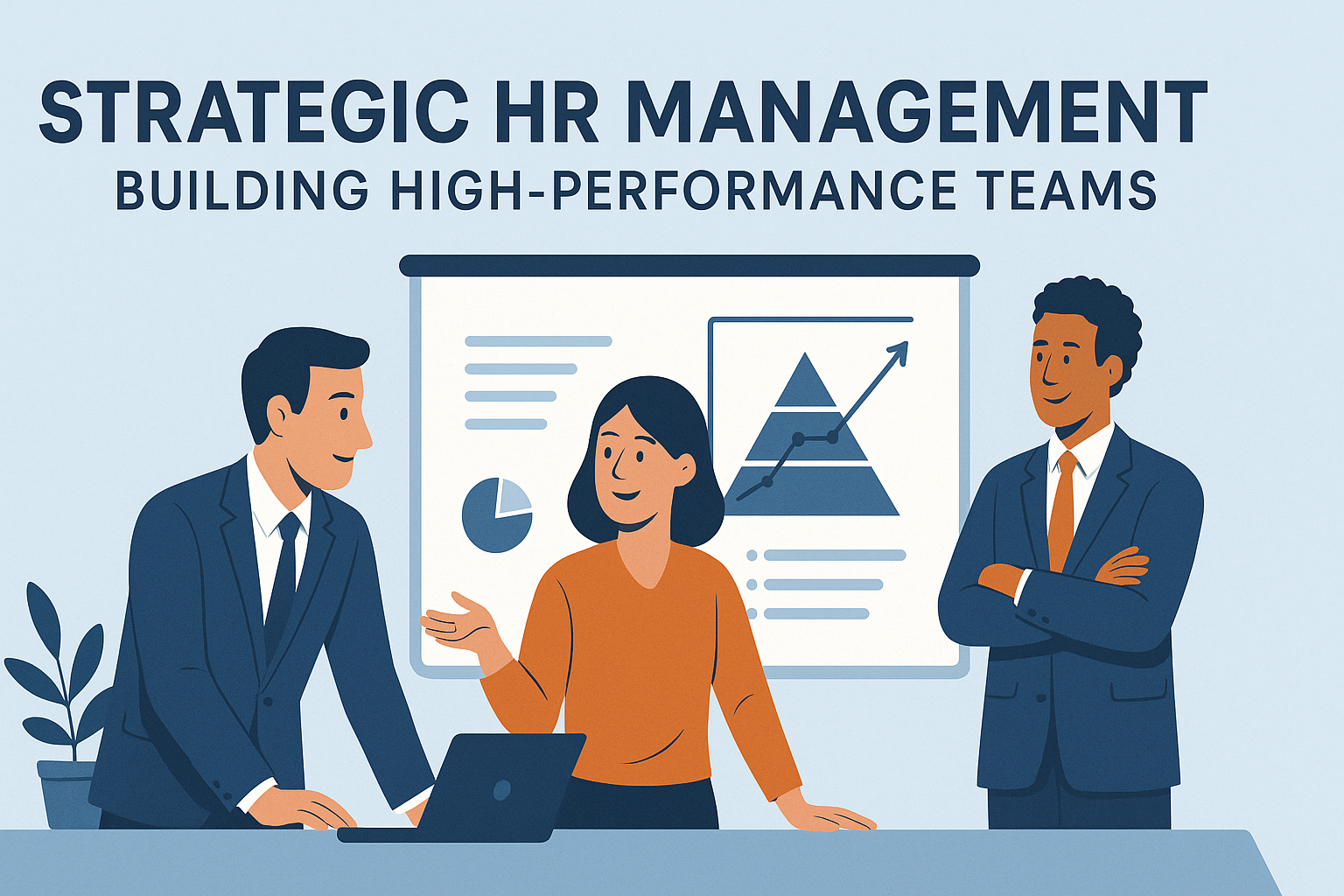
Strategic HR Management: Building High-Performance Teams in 2025
In today's rapidly evolving business landscape, human resources has transformed from a support function to a strategic business partner. Organizations that recognize HR as a competitive advantage are consistently outperforming their peers in productivity, innovation, and profitability.
The Evolution of Strategic HR
Strategic HR management goes beyond traditional administrative functions. It involves:
- Workforce Planning: Anticipating future talent needs and developing pipelines
- Culture Development: Creating environments that attract and retain top talent
- Performance Optimization: Implementing systems that drive individual and team excellence
- Change Management: Leading organizational transformation initiatives
Key Strategies for High-Performance Teams
1. Data-Driven Recruitment
Modern HR professionals leverage analytics to make informed hiring decisions:
- Predictive Analytics: Using historical data to identify successful candidate profiles
- Skills Assessment: Implementing comprehensive evaluation frameworks
- Cultural Fit Analysis: Ensuring new hires align with organizational values
- Diversity Metrics: Building inclusive teams that drive innovation
2. Employee Engagement and Retention
Retaining top talent requires a multifaceted approach:
- Career Development Programs: Providing clear paths for advancement
- Flexible Work Arrangements: Adapting to changing work preferences
- Recognition Systems: Acknowledging and rewarding exceptional performance
- Wellness Initiatives: Supporting employee health and work-life balance
3. Performance Management Systems
Effective performance management drives organizational success:
- Continuous Feedback: Moving beyond annual reviews to ongoing conversations
- Goal Alignment: Ensuring individual objectives support business strategy
- Development Planning: Identifying and addressing skill gaps
- Succession Planning: Preparing for leadership transitions
Technology Integration in HR
Digital transformation is revolutionizing HR operations:
- HRIS Systems: Streamlining administrative processes
- AI-Powered Recruitment: Automating candidate screening and matching
- Learning Management Systems: Delivering personalized development experiences
- Analytics Platforms: Providing insights for strategic decision-making
Measuring HR Success
Key performance indicators for strategic HR include:
- Employee Satisfaction Scores: Measuring engagement and satisfaction
- Retention Rates: Tracking talent retention across different segments
- Time-to-Fill: Measuring recruitment efficiency
- Training ROI: Evaluating the impact of development programs
- Productivity Metrics: Assessing the contribution of HR initiatives to business outcomes
Building a Culture of Excellence
Creating high-performance teams requires intentional culture development:
- Clear Values: Establishing and communicating organizational principles
- Open Communication: Fostering transparent and honest dialogue
- Continuous Learning: Encouraging skill development and knowledge sharing
- Innovation Mindset: Promoting creativity and calculated risk-taking
Future Trends in HR Management
Emerging trends shaping the future of HR include:
- Remote Work Optimization: Developing strategies for distributed teams
- Employee Experience Design: Creating seamless, engaging experiences
- Skills-Based Hiring: Focusing on capabilities rather than credentials
- AI and Automation: Leveraging technology to enhance human capabilities
Conclusion
Strategic HR management is essential for organizational success in today's competitive environment. By focusing on data-driven decision making, employee engagement, and continuous improvement, organizations can build high-performance teams that drive sustainable growth.
The key is to view HR not as a cost center but as a strategic investment that delivers measurable returns through improved productivity, innovation, and employee satisfaction.